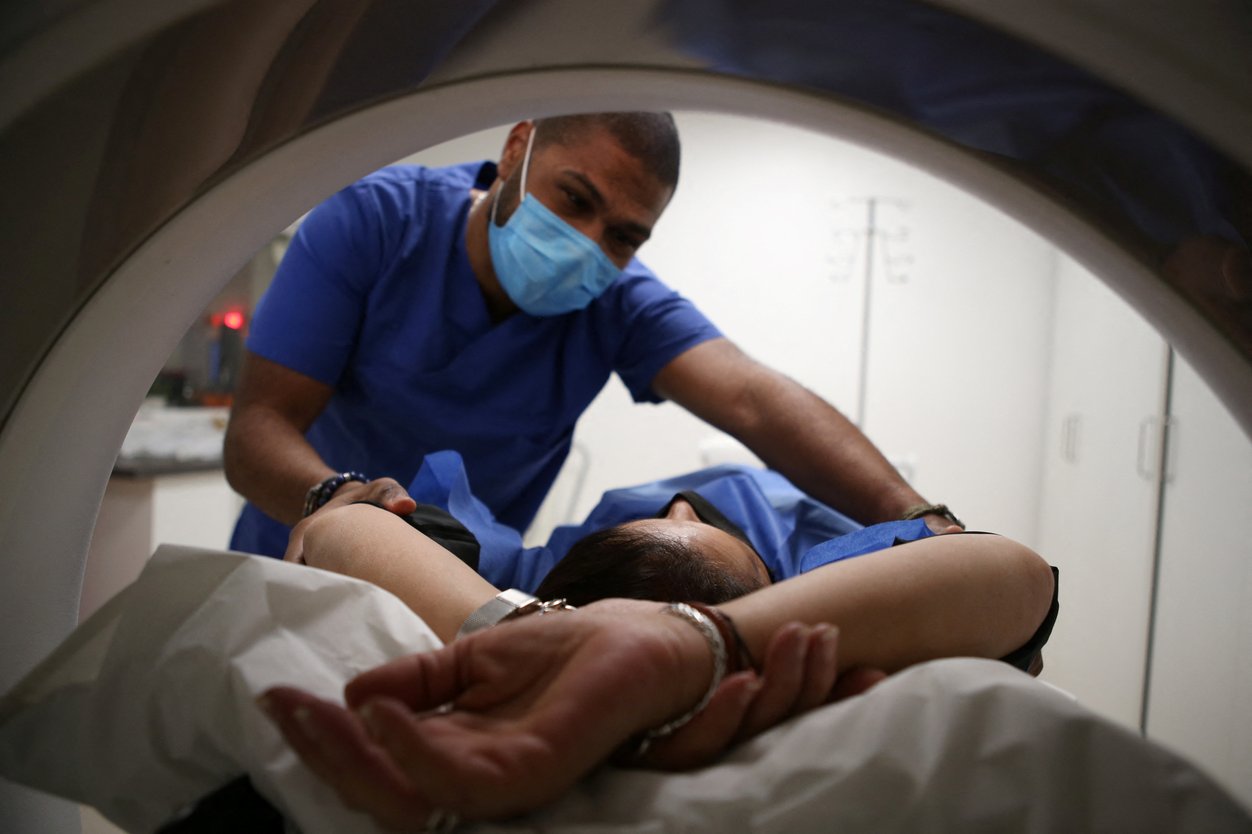closer look
Opinion: How fear of cancer can kill, too
Pascal Pochard-Casabianca/AFP via Getty Images
Cancer is a cruel killer, First Opinion writer David Ropeik reminds us, one whose name people were afraid to speak not too many generations ago and one that still haunts us today. There’s good reason to fear cancer, the second leading cause of death (behind heart disease) in the U.S., but fear of cancer can also be deadly. That fear, or cancer-phobia, as journalist and author Ropeik calls it, keeps people from seeing their doctors or getting screening tests that might improve their chances if they do in fact have cancer.
Even after a daunting diagnosis of lung cancer, people in a recent study delayed coming in for treatment by a median of more than three months. Lung cancer is not the exception, and even a world-renowned cancer expert fearing prostate cancer fell into the avoidance camp. “The War on Cancer badly needs another front, to battle the damage that too much fear of this dread disease can generate,” Ropeik concludes. Read more.
covid
Current long Covid cases settling at 1 of 10 infected

Long Covid rates have begun to flatten, a new KFF analysis says, leveling off at about 1 in 10 people infected with Covid-19. That’s lower than the about 3 in 10 people surveyed who said they’d ever had the brain fog, fatigue, and other lingering symptoms after their initial illness. Some people are recovering, the researchers say, but the need for diagnosis and treatment remains urgent. For context, the estimated 17 million adults now living with long Covid is roughly equivalent to the number of people who have cancer or coronary artery disease, the report says.
Most people with long Covid say it limits their activity, including employment and paying for food, rent, and other basic needs. “Rates of long Covid have remained relatively consistent for the last year, suggesting they may persist indefinitely unless new forms of prevention or treatment are discovered,” the analysis concludes.
health care
Nurses explain why they’ve left the profession
The nursing shortage is not new; it just got worse during the pandemic. Studies have documented the toll on health care providers from Covid-19, citing many nurses’ intentions to exit the profession. A new paper in JAMA Network Open surveyed nearly 8,000 registered nurses who had actually left to ask why. Most were retiring, but between 2018 and 2021, burnout, insufficient staffing, family obligations, Covid-19 concerns, and unsafe working conditions were also behind decisions to pursue employment outside health care. Among retirees, 41% said their retirements were not planned.
Some comments from the survey participants:
- “I would have worked another year or two if we had safe staffing ratios.”
- “Patients are sicker and more complex than ever. … I was constantly voicing concerns for patient safety. ... Can I get another nursing job? Absolutely. … Do I want to? Not really.”
- “I did not want to leave my team, peers, and patients, but the unsupported weight created by the hospital system was too much to [bear] any longer."



